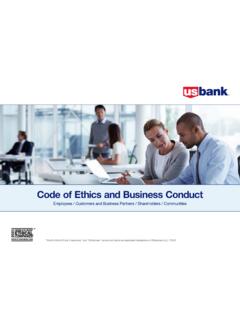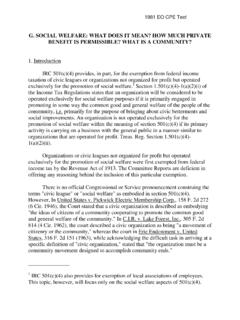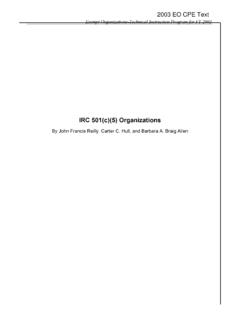Transcription of IN THE HIGH COURT OF BOTSWANA HELD AT GABORONE …
1 IN THE HIGH COURT OF BOTSWANA HELD AT GABORONE . MAHGB-000591 16. In the matter between: LETSWELETSE MOTSHIDIEMANG Applicant and ATTORNEY GENERAL Respondent LESBIANS, GAYS AND BISEXUALS OF Amicus Curiae BOTSWANA (LEGABIBO). Mr. Attorney Lekgowe (with him Ms. P. Ramaja & Mr. Thankane) for the Applicant Advocate Pilane (with him Mr. Begani) for the Respondent Mr. Attorney T. Rantao (with him Ms. Gadise) for the Amicus Curiae JUDGMENT. CORAM: TAFAJ: LEBURU J: DUBE J: LEBURU J: 1. INTRODUCTION. 1. Topical and trending within this constitutional discourse is the interface between law and moral values. Law, it is trite, is a panoply and assemblage of signs, signals,prescripts and protocols that regulate human behaviour and activity. Moral values are standards of what is good, tolerable, bad or evil, which govern an individual or societal behaviour and choices, as may be influenced by different sources and perspectives, be they intrinsic or extrinsic.
2 Juxtaposed together, law therefore ought to be a reflection of society's moral values. 2. Moral relativism informs us that what is morally good or bad to one person, within the realm of sexual orientation, choice and preference, may not necessarily 2. be so to another person, hence a happy and shining reflection of our plurality, diversity, inclusivity and tolerance to both majority and minority rights. 3. Sections 164 (a) and (c) and 165 of the Penal Code proscribe and criminalise sexual intercourse and/or attempt thereof between persons of the same sex and/or gender. Section 167 proscribes both public and private gross indecency. What regulatory joy and solace is derived by the law, when it proscribes and criminalises such conduct of two consenting adults, expressing and professing love to each other, within their secluded sphere, bedroom, confines and/or precinct?
3 Is this not a question of over-regulation of human conduct and expression, which has a tendency and effect of impairing and infringing upon 3. constitutionally ordained, promised and entrenched fundamental human rights? 4. Our bill of rights, as entrenched and enshrined in our Supreme Law (the Constitution), is a manifestum of progressive, long lasting and enduring rights, which yearn for judicial recognition and protection. Any limitation, in the enjoyment of such rights, therefore, ought to be reasonably justifiable within our hallowed democratic dispensation that subscribes to the rule of law, which recognizes and protects both the majority and minority rights and interests. 5. All the foreshadowed questions shall be de-mystified as we hereunder proceed to paint and portray the answers. RELIEF SOUGHT. 4. 6. The applicant, Letsweletse Motshidiemang, in terms of his notice of motion, is seeking the following orders against the respondent, Attorney General, namely:- (a) declaring that Section 164(a), Section 164(c) and Section 165 o f the Penal Code (Cap 08:01, Laws o f BOTSWANA ) are ultra vires Section 86 of the Constitution in so far as the said sections are not made for the good order and governance o f the Republic o f BOTSWANA .
4 (b) declaring that Section 164(a), Section 164(c) and Section 165 o f the Penal Code (Cap 08:01) are ultra vires the Constitution in so far as Section 164 (a) and Section 164(c). are void for vagueness;. (c) declaring that Section 164(a), Section 164(c) and Section 165 of the Penal Code (Cap 08:01) are ultra vires Sections 3 and/or 15 of the Constitution in so far as the said sections discriminate against homosexuals;. (d) declaring that Section 164(a), Section 164(c) and Section 165 o f the Penal Code (Cap 08:01) are ultra vires Section 5 o f the Constitution in so far as the said sections interfere with the applicant's fundamental right to liberty;. (e) declaring that Section 164(a), Section 164(c) and Section 165 o f the Penal Code (Cap 08:01) are ultra vires Section 7 o f the Constitution in so far as the said sections interfere with the applicant's fundamental right not to be subjected to inhuman and degrading treatment or other such treatment.
5 5. (f) any such orders, writs or direction as the COURT may consider appropriate for the purpose o f enforcing or securing, the enforcement of the applicant's rights;. (g) that the respondent bear the costs o f this application; and (h) further and/or alternative relief. 7. On the date of the hearing, this COURT refused an application for postponement made from the bar, by Mr. Begani for the respondent. The reason advanced for the postponement was that Senior Counsel, Mr. Pilane was appearing before Garekwe J. We refused the application because the date of hearing in this matter had long been set, almost four months prior. In any event, all the parties had filed comprehensive heads of argument. It was thus in the interest of justice that the hearing of this application was proceeded with and the application for postponement was refused, having profited from the dictum of Kirby JP, in the case of NON- BANK FINANCIAL INSTITUTIONS REGULATORY.
6 6. AUTHORITY & ANOTHER v CAPITAL MANAGEMENT. BOTSWANA (PTY) LTD & OTHERS - CACGB-071-18. (CA), (unreported, judgment delivered on 27 July 2018). wherein the COURT of Appeal, inter alia, dismissed an application for postponement, made on the date of hearing and from the bar. REASONS FOR ADMISSION OF AMICUS AND. AMICUS CASE. 8. On the 1st November 2017, this COURT granted an order admitting Lesbians, Gays and Bisexuals of BOTSWANA , (LEGABIBO) as amicus curiae and indicated that it will give reasons for such admission in the main judgment. What follows hereunder are brief reasons for such admission. 9. In the case of GOOD v THE ATTORNEY GENERAL121. [2005] 2 BLR 333 (CA), it was held that a party seeking 7. admission or joinder as an amicus curiae must satisfy the following:- (a) interest in the proceedings;. (b) whether the amicus' submissions and/or averments are relevant to the proceedings; and (c) whether such submissions raise new contentions which may be useful to the resolution o f the germane issues and not ju st mere repetition o f submissions already traversed by the substantive parties to the dispute.
7 10. The COURT , it is trite, has a discretion to admit or not admit such an interested party. Such a discretion ought to be exercised judiciously, having regard to the relevant criteria outlined above. See, DITSHWANELO. & OTHERS v THE ATTORNEY GENERAL & ANOTHER. [1999] 2 BLR 56 (HC). 11. The role of an amicus is to draw the attention of the COURT to relevant matters of law and fact to which attention would not otherwise be drawn. The duty of an 8. amicus is to provide cogent and helpful submissions that assist the COURT . The amicus must not repeat averments already made, but must raise new contentions. See. MINISTER OF HEALTH & OTHERS. v TREATMENT ACTION CAMPAIGN 2002 (5) SA 713. (CC) and KEWAGAMANG & OTHERS v ACTING. OFFICER COMMANDING DISTRICT & OTHERS. [2016] 2 BLR 82 (HC); and FOSE v MINISTER OF. SAFETY & SECURITY 1997 (3) SA 786 (CC).
8 12. An applicant, to be admitted as an amicus, must demonstrate, in his or her pathway to joinder as such, not just mere interest. Brand JA, in THE LAW. SOCIETY v DINGAKE & OTHERS - CACGB-108-16, at page 10 para 11 of cyclostyled judgment, drove the point home in the following lucid and crisp terms:- If interest alone were to be found sufficient, it may well open the flood gates o f allowing amici to everyone 9. who may show an interest in the case, o f which there may be many, with the sole purpose of burdening the COURT with repetitive arguments it had heard before. If a party can show direct and substantial interest in the subject matter of the litigation, it can seek to be joined as an intervening party with the concomitant risk, of course, of being held liable for costs. But, as I see it, mere interest in the case should not in itself be sufficient to allow joinder as an amicus curiae.
9 13. See also, KGAFELA II v THE ATTORNEY GENERAL &. OTHERS: In re: GABAOKELWE v THE DIRECTOR. OF PUBLIC PROSECUTIONS [2012] 1 BLR 669 (CA), wherein the same requirements relating to admission of an amicus were traversed. 14. In the present matter, LEGABIBO's averments and submissions were subjected to the above formulation. Primarily LEGABIBO submitted that its vision is to create a tolerant social environment where diversity is appreciated. In terms of its constitution, its objectives, inter alia, are to strengthen the participation of lesbian, 10. gay and bisexual people in the formulation of policy in BOTSWANA , to carry out political lobbying for equal rights and decriminalisation of same sex relationships, to act on behalf of and represent lesbian, gay and bisexual people and to support public health interests by establishing an environment that enables lesbian, gay and bisexual people to protect themselves and others from violation of their basic human rights.
10 15. The aforestated LEGABIBO objectives were stress- tested and judicially embraced by Rannowane J (as he then was, now the Chief Justice of this Republic) in the case of RAMMOGE & OTHERS v THE ATTORNEY. GENERAL MAHGB-000175-13 (yet unreported) where he stated, with humility and sharpness, at page 26 para 58, as follows: The objects of LEGAGIBO as reflected in the societies' constitution are all ex facie lawful. They 11. include carrying out political lobbying for equal rights and decriminalization o f same sex relationships. lobbying for legislative reforms is not per se a crime. It is also not a crime to be a homosexual.. 16. With such judicial recognition and embrace, it is abundantly clear that LEGABIBO has a clear interest in the adjudication of the constitutionality of Sections 164. (a) and (c) and 165 of the Penal Code.


